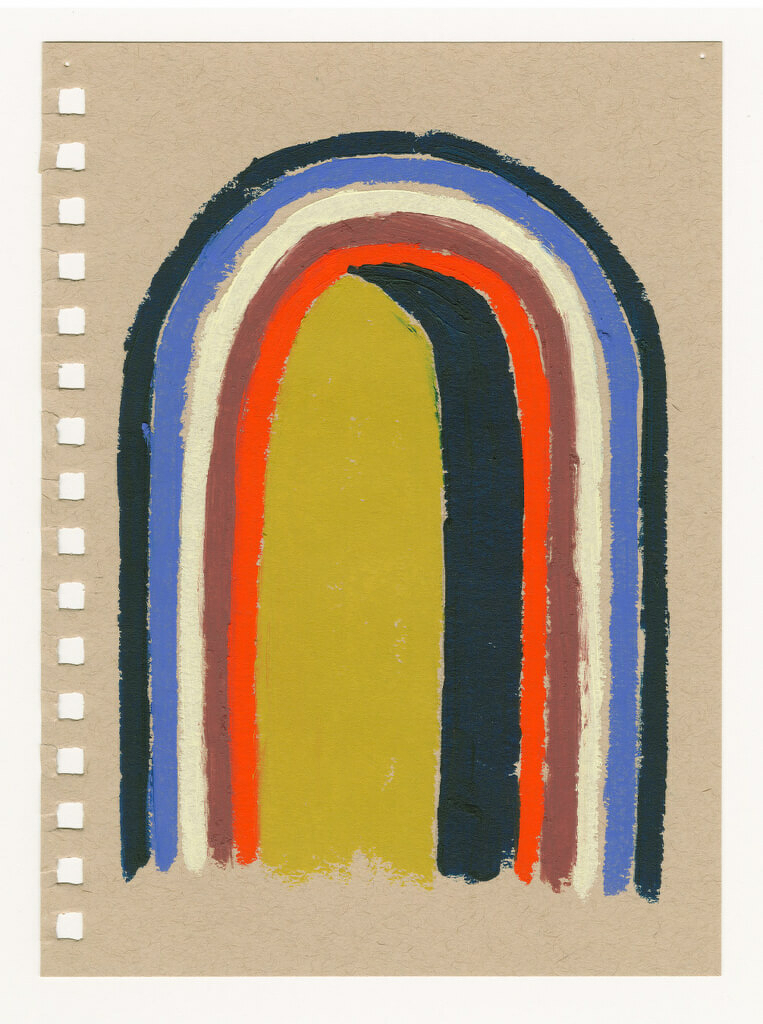What is it that MrBeast, as a “creator,” is “creating”? The obvious answer would be “content.” Content, after all, is what we talk about when we talk about digital media. It’s certainly what MrBeast talks about. But the more I think about online programming, the more I’m convinced that content isn’t what matters. What matters is form. Digital media aspires to, and often achieves, a state of contentlessness. Spend some time on MrBeast’s channel, or scroll down your Instagram feed or your X feed or your Apple News feed, or swipe through your For You page on TikTok. What you’re seeing is the repetition of a pattern, a pattern that has been statistically determined to have the highest odds of holding your attention. What fills the pattern at any given instant—what we call content—is fungible and disposable. It’s not important. It’s the pattern, the form the content fits and replicates, that’s important.
Thus: “AI-generated slop marks the triumph of machine formalism.”

Finished reading: Cadillac Desert: The American West and Its Disappearing Water by Marc Reisner, a powerful book that will make you despair of humanity. Representative passage:
“You’re from the Park Service, aren’t you?” Mulholland demanded more than asked.
“Yes, I am,” said Albright. “Why do you ask?”
“Why?” Mulholland said archly. “Why? I’ll tell you why. You have a beautiful park up north. A majestic park. Yosemite Park, it’s called. You’ve been there, have you?” Albright said he had. He was the park’s superintendent. “Well, I’m going to tell you what I’d do with your park. Do you want to know what I would do?”
Albright said he did.
“Well, I’ll tell you. You know this new photographic process they’ve invented? It’s called Pathé. It makes everything seem lifelike. The hues and coloration are magnificent. Well, then, what I would do, if I were custodian of your park, is I’d hire a dozen of the best photographers in the world. I’d build them cabins in Yosemite Valley and pay them something and give them all the film they wanted. I’d say, ‘This park is yours. It’s yours for one year. I want you to take photographs in every season. I want you to capture all the colors, all the waterfalls, all the snow, and all the majesty. I especially want you to photograph the rivers. In the early summer, when the Merced River roars, I want to see that.’ And then I’d leave them be. And in a year I’d come back, and take their film, and send it out and have it developed and treated by Pathé. And then I would print the pictures in thousands of books and send them to every library. I would urge every magazine in the country to print them and tell every gallery and museum to hang them. I would make certain that every American saw them. And then,” Mulholland said slowly, with what Albright remembered as a vulpine grin, “and then do you know what I would do? I’d go in there and build a dam from one side of that valley to the other and stop the goddamned waste!”
📚
Here’s my first post as a contributing writer for The Dispatch: an essay on how the rise of AI has changed my teaching.
Timothy Lee, whose newsletter is consistently the best guide to developments in AI: “I’ve read all of this information carefully, and it sure looks to me like OpenAI gave the Pentagon what it wanted and undercut Anthropic in the process. The contractual language shared by OpenAI does not appear to meaningfully restrict the government’s ability to spy on Americans or build fully autonomous weapons.” Unsurprising.
Also in this new edition of Hedgehog, another, shorter piece by me on how not to save the planet. Sample:
This marks for me my problem in reading [Jonathan] Schell and [Bill] McKibben: My “slow, unreckoning heart” is unable to keep up with the abstractions of “the Earth” or “Nature.” It needs something smaller to capture its power of affection. Schell himself wrote at the outset of The Fate of the Earth that “in spite of the immeasurable importance of nuclear weapons, the world has declined, on the whole, to think about them very much. We have thus far failed to fashion, or to discover within ourselves, an emotional or intellectual or political response to them.” Precisely.
New issue of The Hedgehog Review out today, with an essay by me trying to outline the conditions under which a new understanding of humanism might be forged and sustained. I’ve been thinking and writing on this topic for several years now, and this essay is my best attempt to map the territory.
A few years ago Reclaim Hosting (which hosts my big blog) decided to increase protections against hacking, so if I try to refresh the blog in MarsEdit it shuts everything down for an hour, making the blog inaccessible to readers as well as to me as editor. I like using MarsEdit to back up my blog to my computer, but I can no longer do that. Similarly, we’re about to change banks because our current bank repeatedly declines to honor obviously legitimate charges, like purchases at our local grocery store. I understand the need to protect against fraud, but not to the point at which a service regularly becomes completely unusable.
Watched: The Awful Truth. Not only the movie in which Cary Grant became CARY GRANT, it’s the very best of the Hollywood screwball comedies. I watch it almost every year. 🍿
Watched: Star Trek: The Next Generation S5E2, Darmok. A justly famous episode, and one day I need to explain why Ian Bogost gets it all wrong. 🍿
UPDATE: I did it.
Watched: Blue Moon. Ethan Hawke’s performance as Lorenz Hart has been getting raves that it thoroughly deserves, but the story starts jumping off the screen when Andrew Scott’s Richard Rodgers shows up. The two of them together are electrifying. 🍿
(Over the next few days I’ll be recording some movies I’ve watched in the last couple of months, just to see if I like using this cool micro.blog feature.)
Listening to Peter Gregson ♫
People still do read, make music, watch films, and visit art museums. There is a culture, high and middle and low, even if it’s under attack. There’s an awareness, too, of the cultural and spiritual sickness of anti-humans. The AI revolution is not very popular. None of its progenitors are celebrated in a way Steve Jobs might have been, when Americans still had great faith in their tech innovators. Writers endure and readers endure. Print book sales are not in decline. Neither is live music. The imagination has an audience and a market. The question will be whether, in the next half century, it can keep both. We have to believe it will. That belief will come with friction; the stakes will grow ever higher. Much is on the line for the AI oligarchs. If enough of us do not take to their creations and make them economically viable, they will be out many billions, maybe begging for federal bailouts. They’ll battle to avoid that outcome as much as they possibly can. This next decade will be pivotal, for both the anti-humanists asserting their market position and the humanists trying to lay claim to what is sacred—and what has driven the progress of human civilization for thousands of years. We will have to preserve our right to imagine.
Terry Godier on his new RSS app:
When a source floods your feed with eighteen posts in a day, a quiet card appears between articles: “The Verge posted 18 items today.” With options to rate-limit or quiet the source. When you've skipped ten straight articles from the same source, Current notices: “You've skipped 10 from TechCrunch. Quiet or remove?” When you keep reading everything from a particular source: “You keep reading Craig Mod. Pin to the top?” When you keep reading about the same topic across different sources: “You keep reading design. Want a design Current?”
To which I want to say: I’m reading my RSS feeds, I’m not taking questions right now. This seems far more intrusive than having an Unread count on your app’s icon (and I have that disabled in NetNewsWire anyway).
We know that the best, most effective users of AI platforms are people with highly developed skills and domain knowledge that they acquired independently of any AI use. So if we want our young people, who will become adults in an AI-dominated world, to navigate that world wisely and skillfully, we need to teach and train them as though AI does not exist. Only then can they use AI rather than be ruled by it.
This story about a universally despised, utterly useless, and yet widely deployed e-learning app should remind us of a key truth: American schools at all levels will buy and mandate the use of anything that promises them cost savings. (And “cost savings” = “employing fewer humans.”)
The liberal tends to hold that once we’re allowed to be free, our better natures will flourish; the conservative believes that only by the strict application of order and discipline can anything morally valuable be squeezed out of our selfish, indolent make-up. Christianity is both a great deal more pessimistic than the liberal and considerably more optimistic than the conservative. The doctrine of the Fall, which has nothing to do with a divinely prohibited apple, suggests that we’re in a sorry mess, as a quick glance around the globe might confirm; but the Christian Gospel also holds that we have a capacity for self-transformation, and that if only we can let go of the present there’s a glorious future in store for us. It isn’t, however, attainable without passing through loss, deprivation, suffering and death, if only in symbolic terms.
What Eagleton defines as Christianity is in fact the opposite of Christianity. If we have “a capacity for self-transformation,” then we have no need for a Christ, and are culpable before God for any failure to transform ourselves. What Eagleton calls the Gospel (good news) would if true be very bad news indeed. Also: Jesus didn’t pass through suffering and death “in symbolic terms,” nor did and do the martyrs.
This is not to say that the unremittingly bleak view of human nature seen in Lord of the Flies, which is the subject of Eagleton’s post, is correct. But that’s a subject for another post.
Yesterday we began discussing The Lord of the Rings (Book I) and the first question was: “Can you explain Tom Bombadil?” So we plunged in to a discussion of old Tom, who in fact is a key to the whole novel. At one point G, sitting next to her dear friend A, raised her hand.
G: There was a time when A’s greatest wish was to marry Tom Bombadil.
A (covering her face in her hands): I was twelve!


